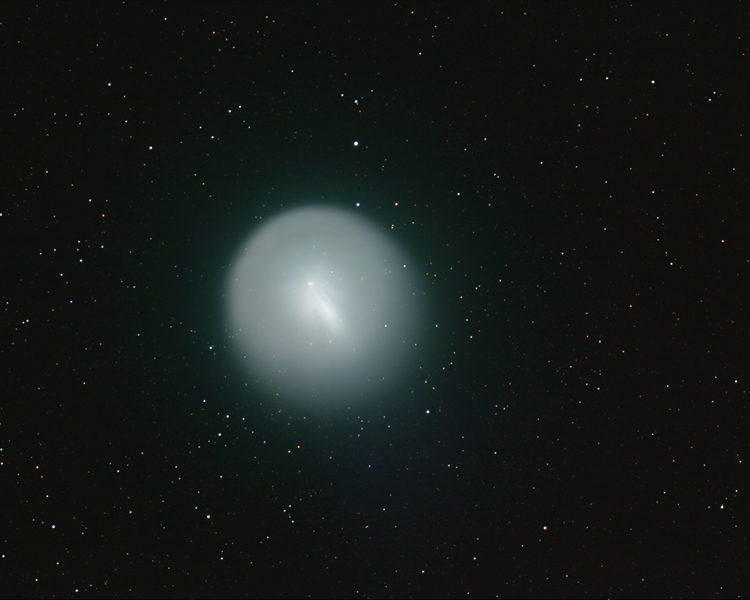
clic here for 60% size 1944 x 1355 (640 kB)
This composite image of the elusive comet 17P/Holmes was possible due to a rare event in the life of this originally very faint comet.
A: 16" cassegrain in secondary focus at f/10
About this Image
On October 24, it increased in brightness over half a million times within hours at a distance of approx. 150 million km. The outburst transformed it from an obscure and faint comet quietly orbiting the Sun with a period of about 7 years to a naked-eye comet rivaling the brighter stars in the constellation Perseus.
We see the comet's greatly expanded coma, but apparent lack of a tail, as it is in our direction. Holmes' outburst could be due to a sudden exposure of fresh cometary ice or even the breakup of the comet nucleus.
Technical Details
Optics
B: TEC-140 at f/7
Mount
MK-100 GEM
Camera
A: SBIG STL-11000M at -25C, internal filter wheel, for 16" cassegrain
B: Canon 40D for TEC-140
Filters
Astronomik LRGB
Date
Nov 04, 2007 20-21h UT.
Location
Wildon/Austria
Sky Conditions
mag 5 sky, average transparency, clouds, temperature 8 C
Exposure
STL-11000: L:R:G:B = 900:300:300:300 sec (60-sec sub-exposures); binned 2x2
Canon 40D: 1200 sec(120 sec sub-exposures);
Processing
Image aquisition and calibration in Maxim DL 4.11;
mild Larson Sekanina filter applied and blended in.
further processing in Imagesplus and Photoshop; North is up;